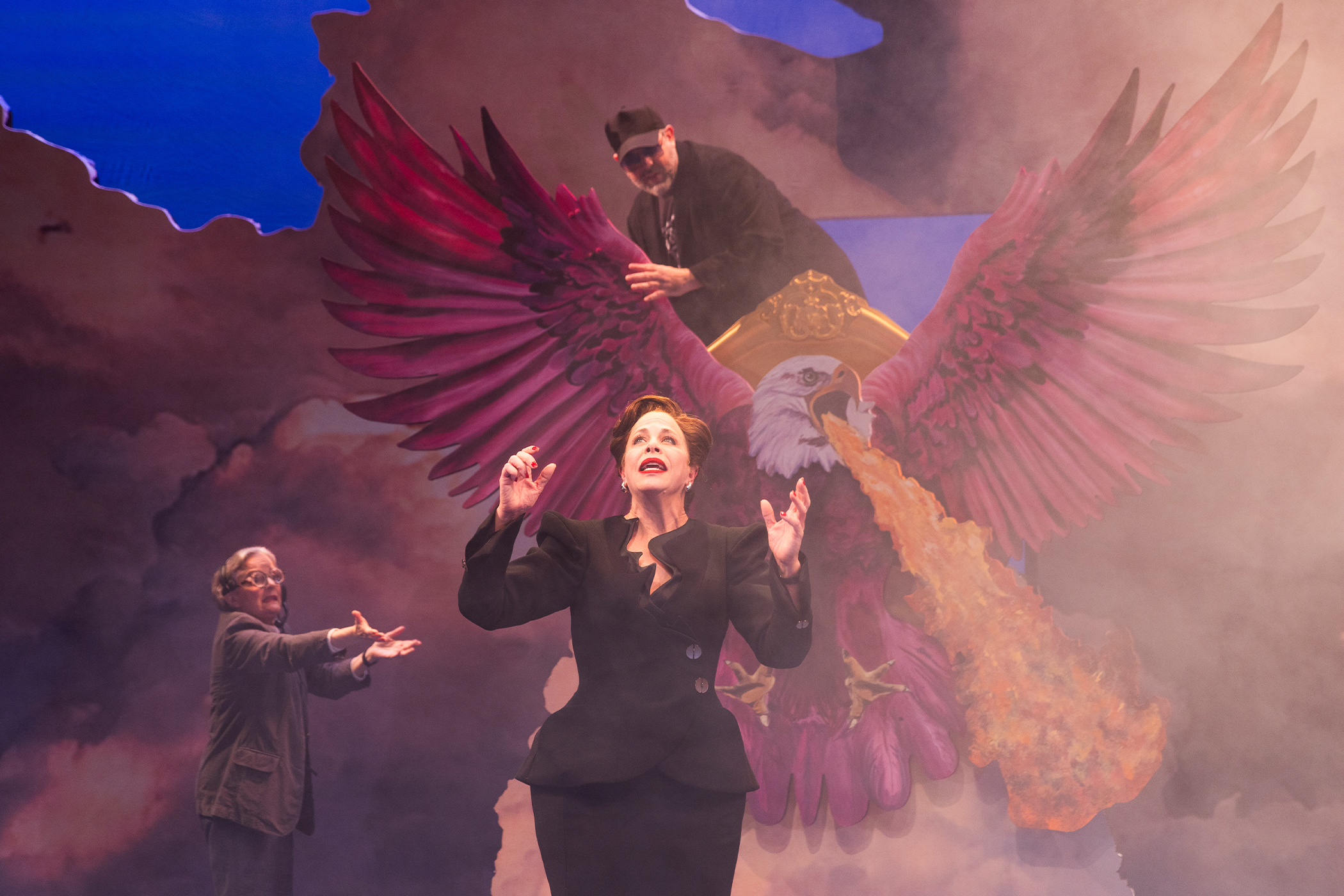My Own Take: 'Prosperous Fools' starring Taylor Mac
All photos by Travis Emory Hackett
The show: “Prosperous Fools” at off-Broadway’s Theatre for a New Audience in Brooklyn.
What makes it special?: A new work by and starring sui generis theater artist Taylor Mac, inspired by Moliere, and directed by Darko Tresnjak, former artistic director of Hartford Stage.
And Taylor Mac is,…?: A MacArthur “genius” grant recipient and one of the most creative artists working in theater today. Witness his 24-hour “24-Decade History of Popular Music,” several years ago — and check out that show in a fascinating documentary streaming on Max-HBO. That work was a Pulitzer Prize-finalist. His Broadway play, “Gary: A Sequel to Titus Andronicus” starred Nathan Lane and was one I also admired for its comedy and nerve.
What’s this one about?: It’s a bite-the-hand-that-feeds-it satire — and bite it, it surely does and deeply. It is both scathing and riotous; stupid and anguished; silly and profound; real and surreal. There’s some Moliere tasty bits (VERY loosely based on “The Bourgeois Gentleman”), a dash of Greek mythology, some Brechtian moments, classical ballet riffs, commedia dell’arte broadness, and all of it mixed through Mac’s dazzling vision. Oh yes, it has Wallace Shawn, too — sort of. How this play even got produced is nothing short of a miracle — and bravo to Theatre for a New Audience for doing this.
And why is that?: Mac has been searching for a not-for-profit theater to produce this work for 12 years but due to the nature of the satire — which is aimed at those very theaters — it was a long and daunting journey.
So what’s it about?: Two philanthropic and social climbing patrons of the arts — one a vulgar, oligarch-style businessman in need to polish his image and the other is a famous film actress who brands herself as a global humanitarian are being honored by a dance company.
Mac plays a theater artist/choreographer who has created a comic ballet about Prometheus at a not-for -profit arts center and is rehearsing the piece for a benefit performance at the institution’s gala. The rehearsal is funny in its own right but when the two benefactors arrive, what follows is even more hilarious/horrifying
Sierra Boggess deliciously plays the self-involved superstar with a wicked twinkle as she seesaws between inner self and outer persona. (Anita Yavich’s costumes for her are both beautiful and pointed. The design wit continues on Alexander Dodge’s scrappy setting which includes the Aster Place Cube near the P{public Theater. Ouch.)
Jason O’Connell gives a bravura brutish performance as the other moneybags. (Think Scott Rudin or Harvey Weinstein writ large.) Of course both benefactors are being honored at the gala (but at least neither is demanding the institution changes its very name in exchange for their dough).
Bottom line: It’s about the ridiculous and humiliating lengths those in the arts must do before powerful sources of funding. Mac skewers the changing nature of arts giving and the ways arts leaders must slink to so-called “patrons of the arts” who demand that their giving be targeted for success and that it be run like a for-profit business.
Jennifer Regan is also comically brilliant as the long-suffering arts executive leader who has a stunning breakdown in the second act. In fact, all the major players have a tour de force monologue, but none as jaw-dropping as O’Connell’s. I was stunned by this daring stream-of-conscious writing and his no-holds-barred performance.
Kaliswa Brewster is also funny as the unpaid intern and likewise Jennifer Smith and the overwhelmed stage manager who never-the-less keeps things on track no matter what. Aerina Park Deboer cracked me up as an angelic-yet-kind-of-creepy “potbellied child” that dutifully follows Boggess.
Any reservations?: Satire, even brilliantly done, is best presented when the points aren’t extended beyond their welcome. The production would have fared better without an intermission. Also, in retrospect, the play at times seemed a little too “inside-baseball” and going beyond the world of not-for-profit arts could have made the satire’s scope — and audience appeal — wider. Also, the epilogue could be seen as a bit twee but Mac’s sincerity and credentials make it deeply effective.
Who will like it?: Underpaid not-for-profit workers in the arts. Audiences who welcomes plays that have something to say and provoke post-show discussions.
Who won’t?: David Geffin. The Koch Brothers. A lot of not-for-profit theater boards.
For the kids?: They might not get the deeper meanings of the satire but they will enjoy the wildness.








